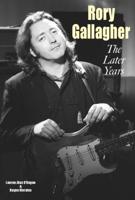Publisher's Synopsis
Plato, one of the most influential philosophers in history, formulated a theory that transformed our understanding of reality, knowledge, and politics: the Theory of Forms. In this essay, David Sandua delves deeply into Platonic thought, presenting a clear and accessible view of its fundamental concepts. From the distinction between the sensory and the intelligible world to the Allegory of the Cave, the concept of the Good, and the idea of the philosopher-king, this book breaks down the key aspects of Plato's philosophy and its impact on Western thought.
Through a detailed analysis, the author not only reviews Socrates' influence and the dialectical method in Plato's work but also contrasts his ideas with those of other philosophers such as Aristotle, Heraclitus, and Parmenides. The book also explores critiques and defenses of the Theory of Forms over the centuries, from the Middle Ages to modern thought, highlighting its relevance in contemporary philosophical debates.
This book is an invitation to rediscover Plato's legacy and understand how his vision of knowledge, justice, and education continues to resonate today. An essential read for those seeking to deepen their understanding of the history of philosophy and the eternal quest for truth.









